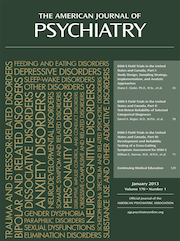Effect of a Paraprofessional Home-Visiting Intervention on American Indian Teen Mothers’ and Infants’ Behavioral Risks: A Randomized Controlled Trial
Abstract
Objective
The authors sought to examine the effectiveness of Family Spirit, a paraprofessional-delivered, home-visiting pregnancy and early childhood intervention, in improving American Indian teen mothers’ parenting outcomes and mothers’ and children’s emotional and behavioral functioning 12 months postpartum.
Method
Pregnant American Indian teens (N=322) from four southwestern tribal reservation communities were randomly assigned in equal numbers to the Family Spirit intervention plus optimized standard care or to optimized standard care alone. Parent and child emotional and behavioral outcome data were collected at baseline and at 2, 6, and 12 months postpartum using self-reports, interviews, and observational measures.
Results
At 12 months postpartum, mothers in the intervention group had significantly greater parenting knowledge, parenting self-efficacy, and home safety attitudes and fewer externalizing behaviors, and their children had fewer externalizing problems. In a subsample of mothers with any lifetime substance use at baseline (N=285; 88.5%), children in the intervention group had fewer externalizing and dysregulation problems than those in the standard care group, and fewer scored in the clinically “at risk” range (≥10th percentile) for externalizing and internalizing problems. No between-group differences were observed for outcomes measured by the Home Observation for Measurement of the Environment scale.
Conclusions
Outcomes 12 months postpartum suggest that the Family Spirit intervention improves parenting and infant outcomes that predict lower lifetime behavioral and drug use risk for participating teen mothers and children.



